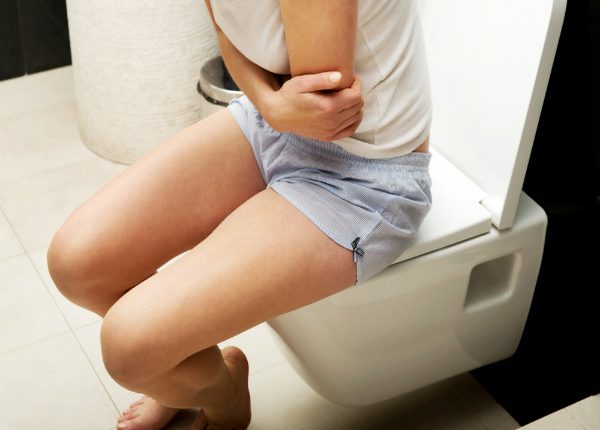Why Is My Poop Coming Out In Small Soft Pieces? – There’s nothing quite as frustrating as dealing with irregular bowel movements. And if your poop is coming out in small, soft pieces, it can be even more confusing and worrisome. So, what’s the deal? Why is my poop coming out in small soft pieces?
There are a few different things that could be going on. First, it could be a sign of something called “insufficient gut motility.” This means that the muscles in your digestive system aren’t working as efficiently as they should be to move food through your system. As a result, your poop may not be properly formed.
Another possibility is that you’re not getting enough fiber in your diet. Fiber helps add bulk to your stool, so if you’re not getting enough of it, your stool may be smaller and softer than usual.
Lastly, certain medications can cause soft stools or diarrhea. If you’ve started any new medications recently, that could be the culprit.
If you’re concerned about your small, soft stools, talk to your doctor. They can help figure out what’s going on and recommend the best course of treatment.
What Causes Small Soft Pieces of Poop?
There are many different reasons why your poop may be coming out in small soft pieces. It could be due to something you ate or drank, a change in your diet, an infection, or a health condition.
If you notice that your poop is coming out in small soft pieces after eating or drinking something new, it’s likely that the food or drink was the cause. Some foods and drinks that can cause loose stools include dairy products, high-fiber foods, fatty foods, spicy foods, caffeine, and alcohol. If you think a food or drink is causing your loose stools, try avoiding it for a few days to see if your symptoms improve.
If you’ve recently made a change to your diet, such as increasing your fiber intake or starting a new weight-loss program, this could also be the reason for your loose stools. It’s common for people to experience some changes in their bowel movements when they make dietary changes. However, if your symptoms are severe or persist for more than a week, it’s important to speak to your doctor as there could be another underlying cause.
Infections and illnesses are other possible causes of small soft pieces of poop. If you have an infection in your gut, such as gastroenteritis (the “stomach flu”), this can lead to diarrhea (loose stools). Similarly, other illnesses like irritable bowel syndrome (IBS), celiac disease (an autoimmune disorder that affects the digestive system), and Crohn’s disease (an inflammatory bowel disease) can all cause loose stools.
Finally, certain medications can also cause small soft pieces of poop. Antibiotics, in particular, are known to disrupt the bacterial balance in your gut and can lead to loose stools. If you’re taking any medications and have noticed changes in your bowel movements, it’s important to speak to your doctor who will be able to advise you on the best course of treatment. Also read | The 7-Second Trick To Prevent A Heart Attack: What You Need To Know
How Can I Change My Diet to Improve the Quality of My Poop?
If you’re concerned about the quality of your poop, changing your diet may be a good place to start. Here are a few dietary changes that can help improve the quality of your poop:
Eat more fiber. Fiber helps add bulk to your stool, making it easier to pass. Good sources of fiber include fruits, vegetables, whole grains, and legumes.
Stay hydrated. Drinking plenty of fluids helps keep your stool soft and easy to pass.
Avoid processed foods. Processed foods tend to be low in fiber and can lead to constipation.
Add probiotic-rich foods to your diet. Probiotics are good bacteria that help promote a healthy gut. yogurt, sauerkraut, kimchi, and miso are all good sources of probiotics.
What Else Could be Causing My Symptoms?
There are a few other potential causes of your symptoms, including:
Infections: Some infections can cause diarrhea, especially if they involve the gastrointestinal tract. Infections can be caused by bacteria, viruses, or parasites.
Dietary issues: If you have recently changed your diet or started taking new supplements, that could be the cause of your symptoms. Certain foods and drinks (including alcohol) can also contribute to diarrhea.
Medications: Some medications can cause diarrhea as a side effect. This includes antibiotics, laxatives, and certain antidepressants.
Chronic illnesses: Some chronic illnesses like Crohn’s disease and irritable bowel syndrome can cause diarrhea.
When Should I See a Doctor?
If you notice that your poop is coming out in small, soft pieces, it could be a sign of diarrhea. Diarrhea can be caused by a number of things, including food poisoning, a stomach virus, or an infection. If you have diarrhea, you may also experience cramping, bloating, and gas. These symptoms can last for a few days and make it difficult to have a normal bowel movement. If you are experiencing these symptoms, it’s important to see a doctor so they can determine the cause and provide treatment.
Summary
If you’ve ever experienced a sudden change in your bowel movements, you know how alarming it can be. Most of us are used to our poop coming out in one solid piece (or a few smaller pieces). So when it starts coming out in small, soft pieces, it’s natural to wonder what’s going on.
There are a few different reasons why your poop may suddenly take on this new form. It could be due to something you ate or drank, a change in your activity level, or even a side effect of certain medications. In most cases, there’s no need to worry. Your body will usually adjust and return to normal within a few days.
However, if the changes last longer than a week or two, or if you’re experiencing other symptoms like abdominal pain or bleeding, it’s important to see a doctor. They can rule out any underlying health conditions and help you get back on track. Home
More to read | Does Drinking Water Make You Wetter During Intimacy?










